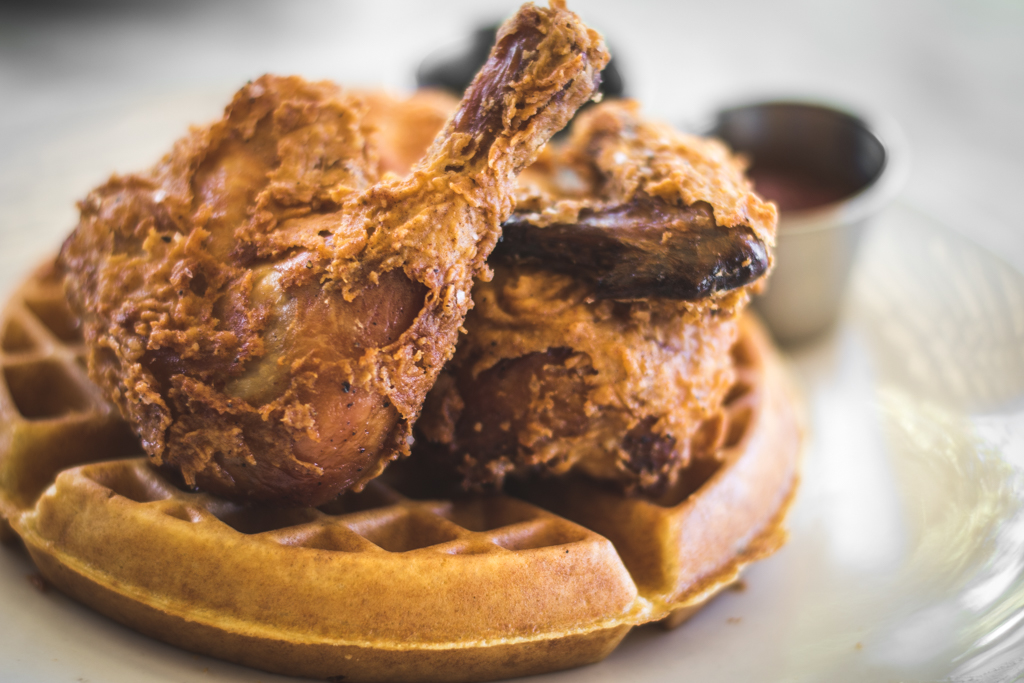
We asked Tucson chefs this question and let them answer as briefly or in as much detail as they wanted. Here are their responses.
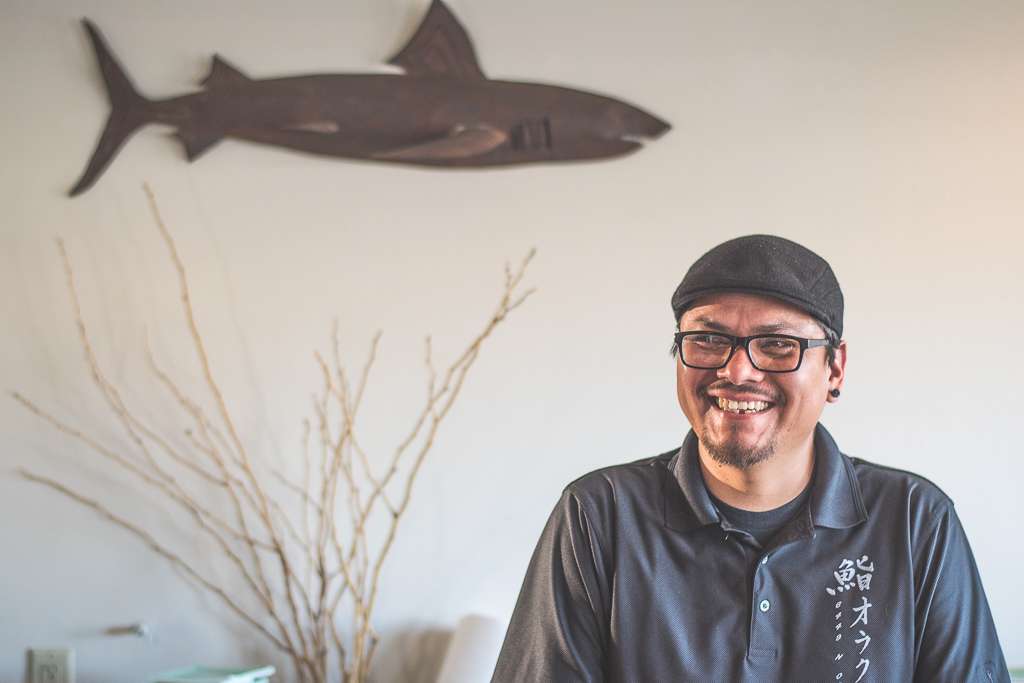
“The best cook book I have picked up has to be the Modern Cafe. It is basically a textbook written for the CIA (Culinary Institute of America). The techniques and science in this book have been helpful in finding my edge in breads, pastries, or deserts. I’m from the School of Hard Knocks and pastry is not a class taught.”
View our October 2017 Nine on the Line with Tommy Begay.
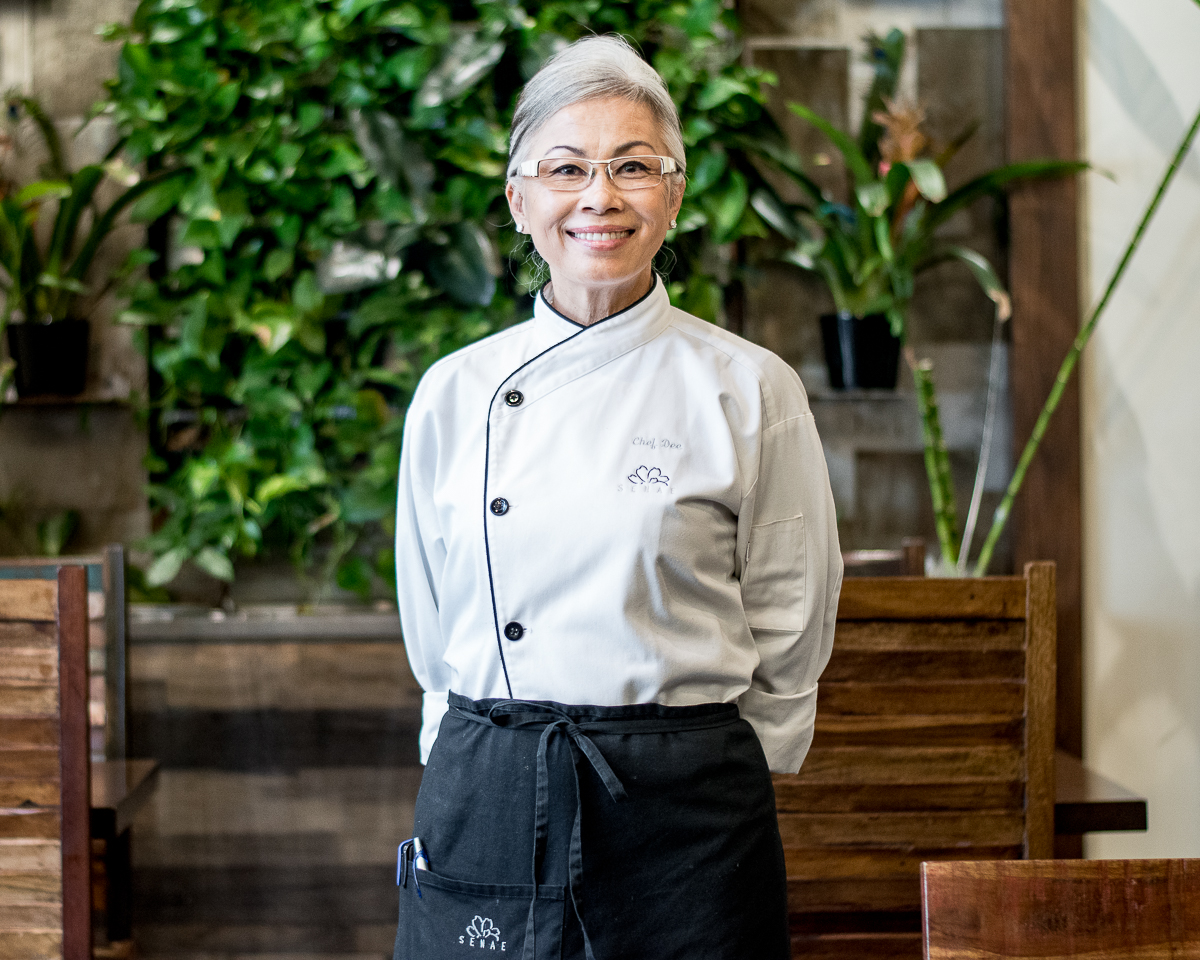
“Actually, I don’t have a favorite cookbook. In fact, I have never used one. I first learned to cook by helping my mother in the kitchen, and she, by helping her mother. So, the basis for all of my dishes is what I learned from my mom and grandma. With that solid foundation, in 1987 I opened my first restaurant, Sweet Basil, in Berkeley, California. My cuisine has evolved from what it was 30 years ago. While remaining true to my roots, and while maintaining the authenticity of true Bangkok food, my dishes are now more refined, sophisticated, and served in a way that they are not only delicious and aromatic, but also pleasing to the eye.”
View our October 2017 Nine on the Line with Dee Buizer.
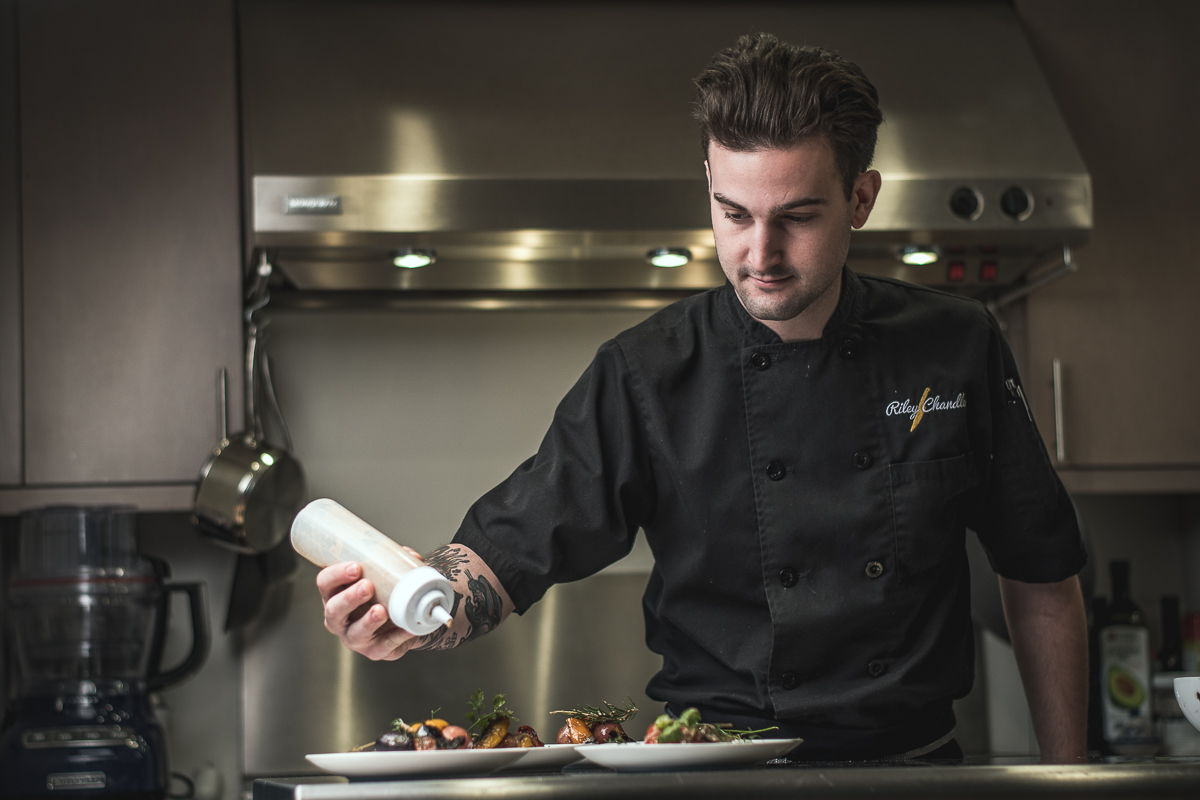
“To me, there’s two types of cookbooks: the ones you leave on your coffee table for the looks (Alinea and Eleven Madison Park cookbooks for example) and then there are books of equal caliber that aren’t on the coffee table, they’re on a shelf in your kitchen covered with stains because you can’t stop using it. For me that book is the French Laundry Cookbook. So many essential recipes and techniques, everything from garnishing to stocks. In that book, Keller explains braising perfectly. I really think every cook should own a copy.”
View our June 2017 Nine on the Line with Riley Chandler.
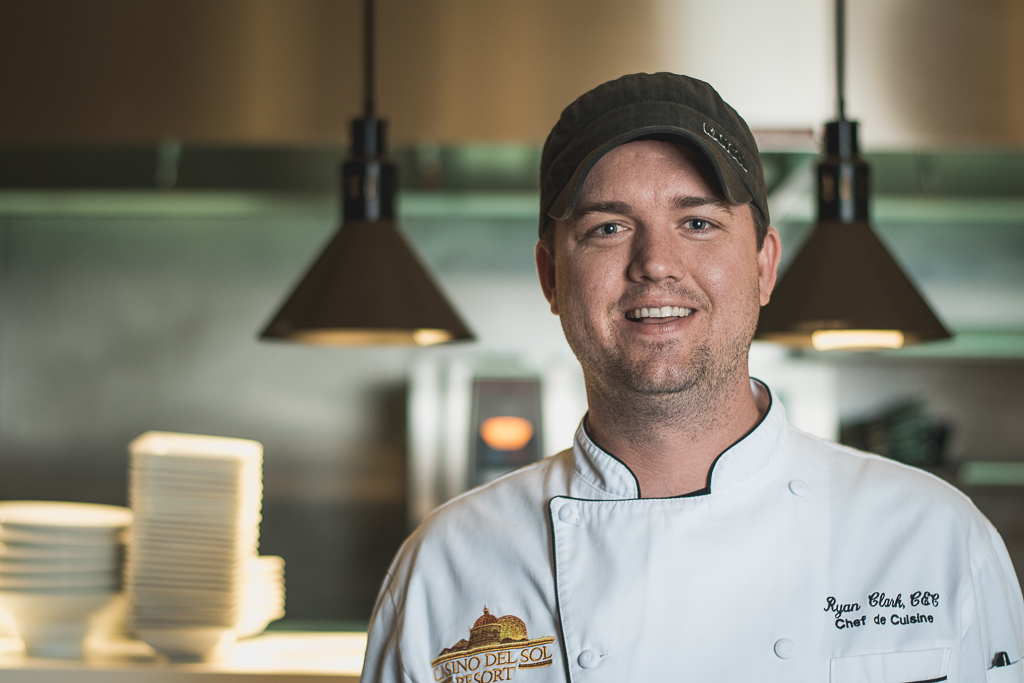
“My collection of cookbooks date back to over 15 years of cooking in the industry. Needless to say; I have an extensive collection. However, one book that stands out above the rest and is covered in kitchen grease, flour and pasta sauce. That book is Culinary Artistry written by Andrew Dornenburg and Karen Page. The book’s main purpose is to assist cooks in ‘Composing a Dish.’ It helps you distinguish which flavors work well together and what’s in season during that time and/or year. It’s a tool to use as a building block and starting point to a dish. For instance, if I have some beautiful lamb chops to prepare you can flip to page 134 and be enticed to work with flavors like yogurt, pomegranate, and curry. The book even pushes you in the direction of cooking techniques; grill, saute, and sous vide. Almost every recipe we work on has a starting point and Culinary Artistry is the cookbook for that. Of course, if you’ve already read that, you can read mine: Modern Southwest Cooking.”
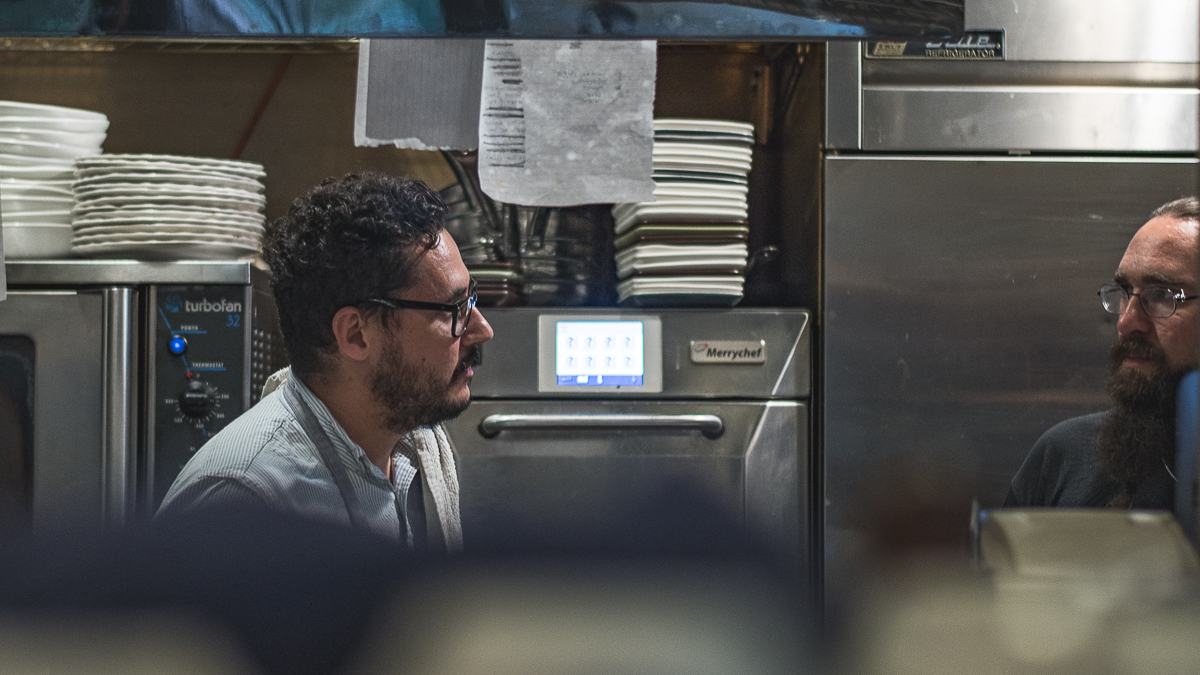
“Before cooking I worked in bookstores and would nurture my love of cooking by taking projects in the cookbook section. I wish I could say it was the French Laundry Cookbook or something as refined, but truth be told, Anthony Bourdain’s Les Halles Cookbook always stood out to me. I remember initially being attracted to the jacket , which was made of butcher’s paper. The book screamed old school working-class French cookery, a sort of wine soaked rustic beauty that I’m still enamored with today. I remember my first recipe attempt was a disastrous Boeuf Bourguignon — fat everywhere, sauce all wrong, etcetera — but it was the first “real” restaurant recipe I had attempted and I worked hard the next few times to get it right. Before each section would be a gritty shot of something relating to a working kitchen: older men breaking down pigs, a produce order being put away, or a huge beat up stock pot simmering. I found the whole presentation extremely romantic.”
View our December 2017 Nine on the Line with Mahmoud Elbarasi.
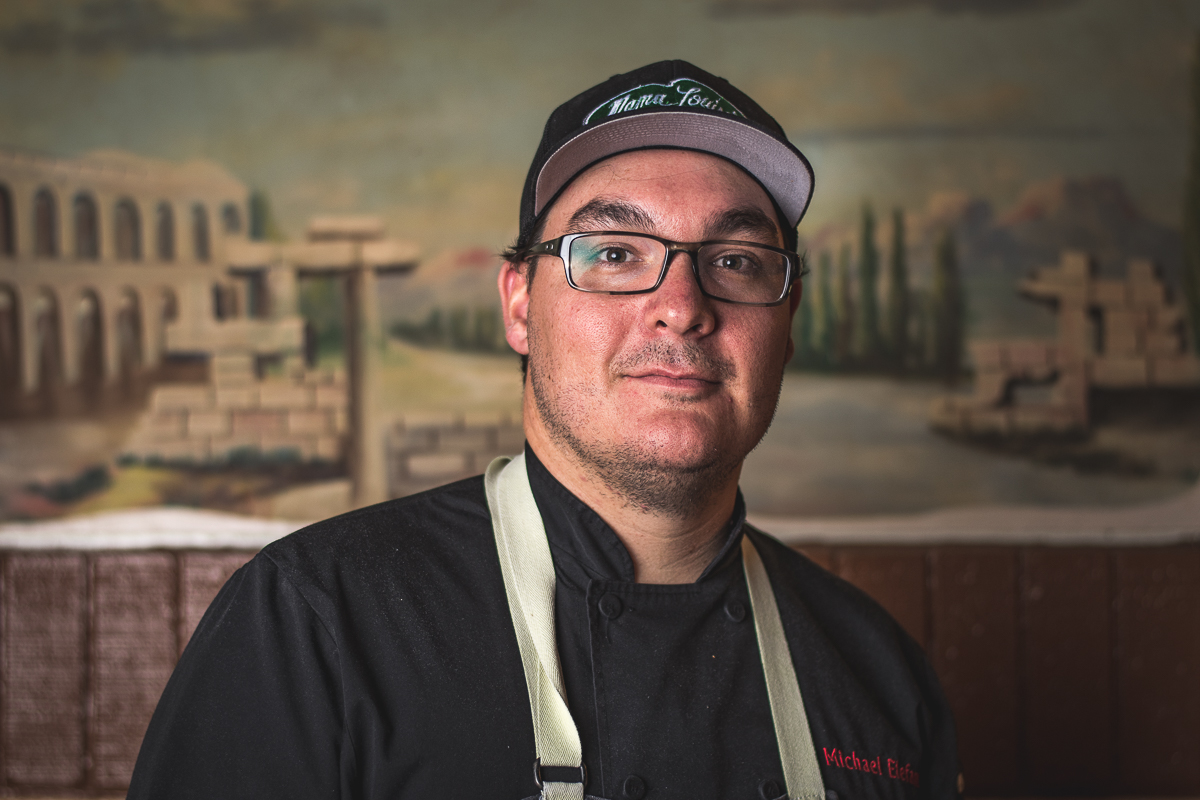
“Obviously for me either Flour + Water: Pasta or Mastering Pasta. We have finally gotten to make all of our pasta in house now. We make seven different shapes and cuts now from scratch. These books have helped us get there.”
View our November 2016 Tools They Use with Michael Elefante.
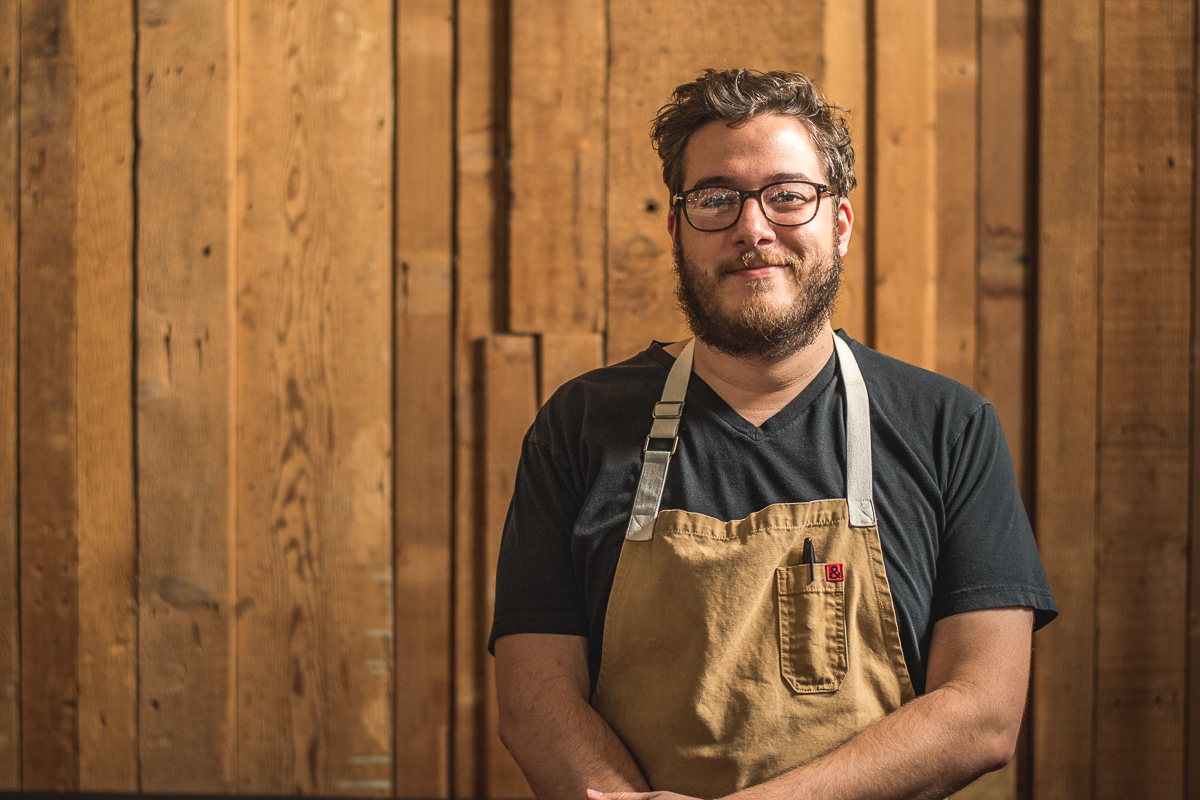
“I have a lot of cookbooks… like, running out of room to store them all. I am obsessed with cookbooks. I love getting insight into the creative process of other chefs and their restaurants. Learning about different cuisines and having books for constant reference is amazing. The book I reference more than any other would have to be the Flavor Bible. It’s essentially an encyclopedia of ingredients and what they work well with. When we are working on a new idea, it is a great resource to spark creativity. I keep a copy at the restaurant, and one on my bedside table for late night brainstorming.”
View our February 2017 Nine on the Line with Tyler Fenton.
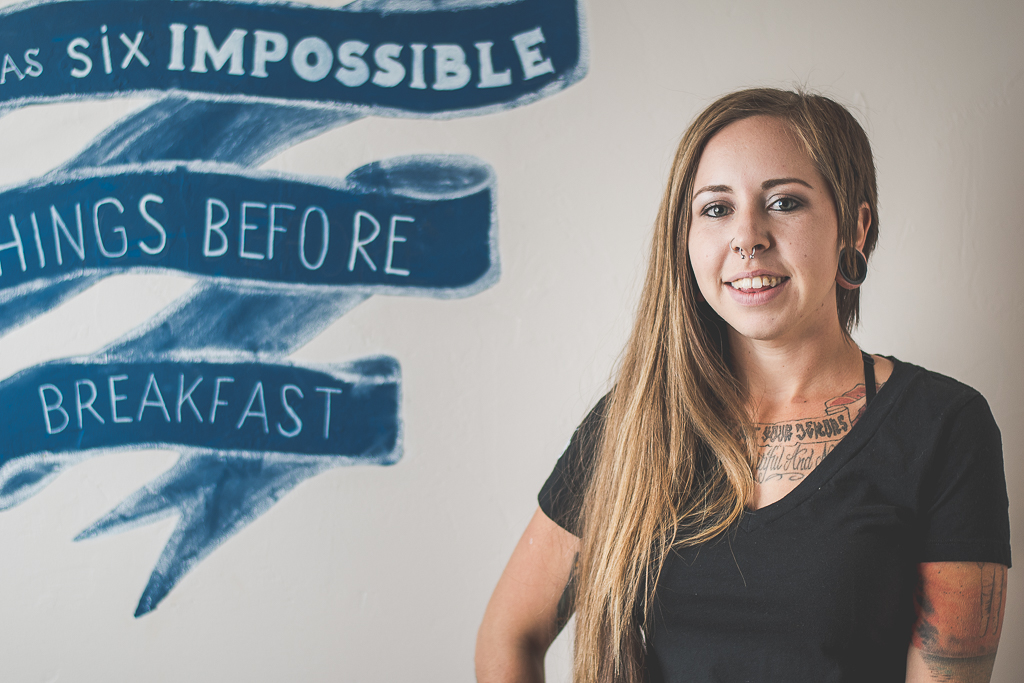
“Once I started baking professionally, and went on to a chef-ing position, all my bookshelves were suddenly filled with cookbooks, as it became the easy go to for gifts at every holiday and birthday. It’s really not a bad thing. So, I have all these wonderful cookbooks piling up on me, and I get obsessed with one or another as I work my way through them, but my baseline that I’ll always come back to is the Bread Baker’s Apprentice. It’s really a masterpiece. It’s a cookbook that is enveloping in the way that a novel is, where I’m just as happy reading my way through it as I am actually baking my way through. If you’re interested in breads, the science behind it, the why, and the how, it’s really the first stop on your journey. ”
View our September 2016 Tools They Use with Hannah Houlden.
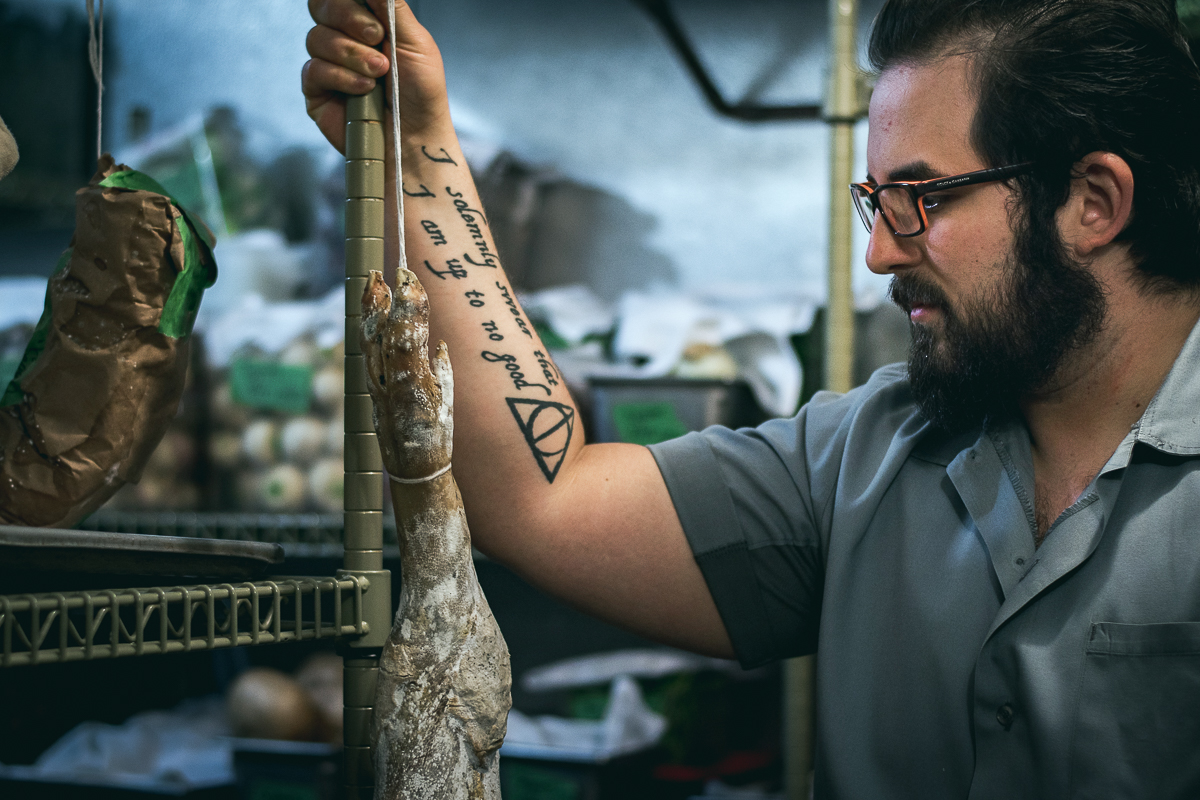
“Not a cookbook, but favorite culinary book has to be Kitchen Confidential by Anthony Bourdain. It should just be required reading for cooks, anytime I’m at Bookmans and I see a copy I snag it to give to someone who hasn’t read it. It’s hard to pick a favorite cookbook, I get inspired by something in so many. But, my most referenced and used would probably be The New Charcuterie Cookbook by Jamie Bissonnette. It’s almost falling apart at this point.”
View our April 2017 Nine on the Line with Roderick LeDesma.
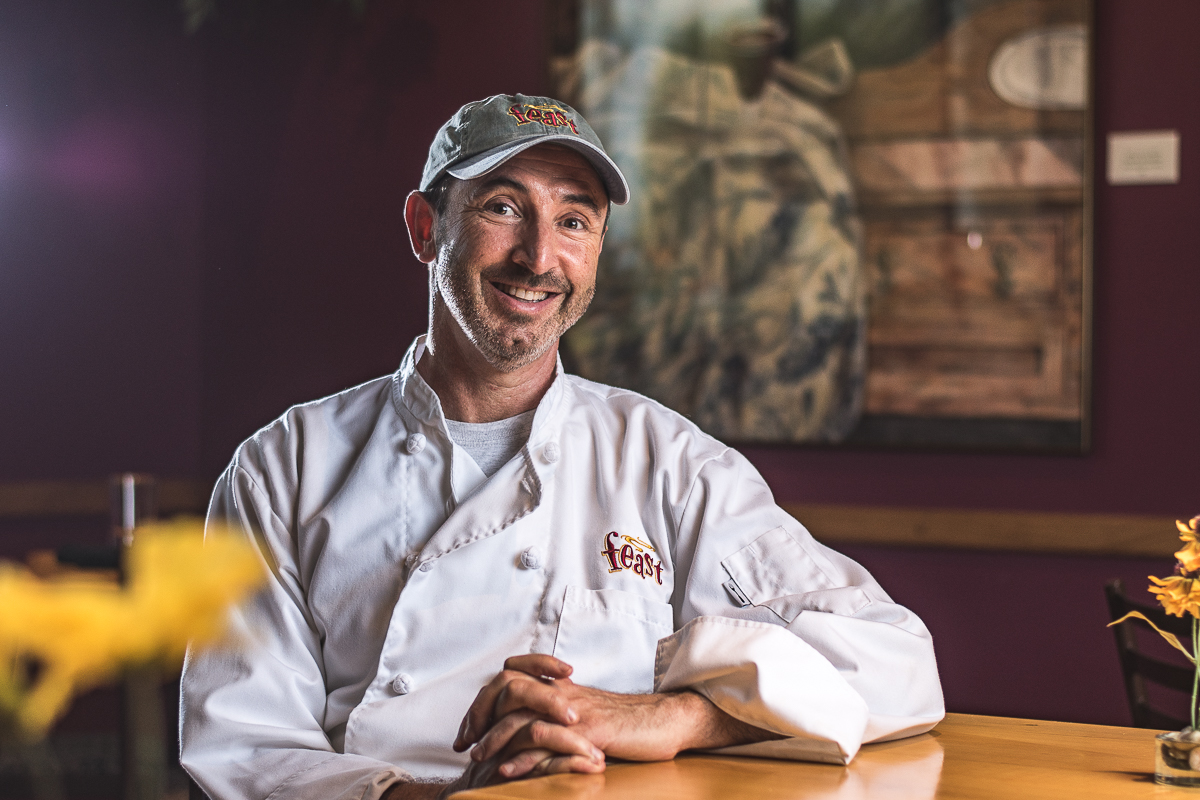
“The Old World Kitchen – The Rich Tradition of European Peasant Cooking, by Elisabeth Luard
On the one hand, a cookbook that spans all of European geography, from the Mediterranean to the British Isles to Scandinavia to Eastern Europe and Greece, and on the other, a historical and socioeconomic study of the historical periods that offered up the dishes whose recipes you’ll find here. Elisabeth Luard is not just an excellent cook; she’s a brilliant cultural anthropologist, historian, researcher, and scholar.
It’s fun just to read whether you’re making the recipes or not.”
View our September 2017 Nine on the Line with Doug Levy.
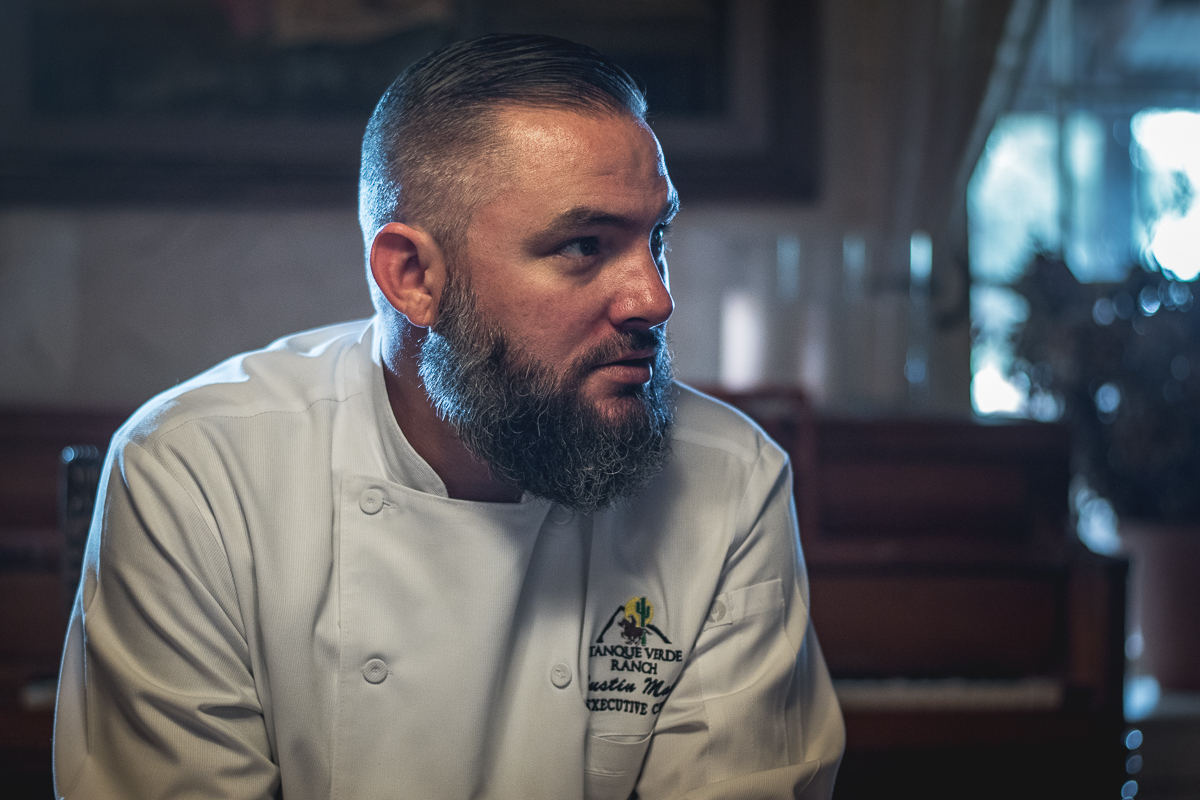
“Well mine of course! Sweet & Savory. Just kidding, but I’m very proud of co-authoring three cook books. I would have to say Thomas Keller, the French Laundry Cookbook. Very clean and inspiring to me when I’m in a slump.”
View our April 2017 Nine on the Line with Justin Macy.
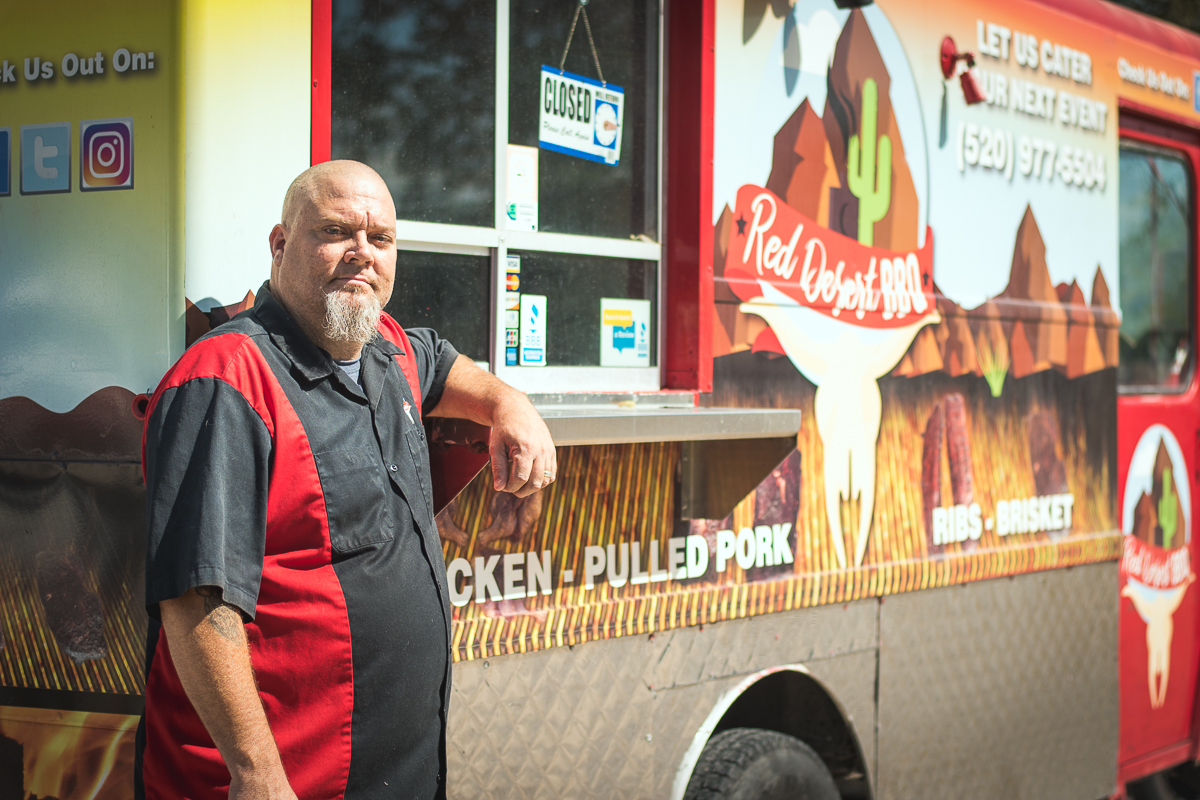
“I like the book Joy of Cooking by Rombauer. This book was given to me as a wedding gift in 1993. It has a lot of old school styles in it and recipes that remind me of the way my mother cooked when I was growing up. As for a workbook and reading enjoyment the book just about every cook or chef has read, Kitchen Confidential by Anthony Bourdain is a pleasing go-to. I have all my culinary books that I use sometimes to refresh my old mind. Also, It’s About Time: Great Recipes for Everyday Life by chef Michael Schlow has awesome recipes in it.”
View our December 2017 Nine on the Line with David Martin.
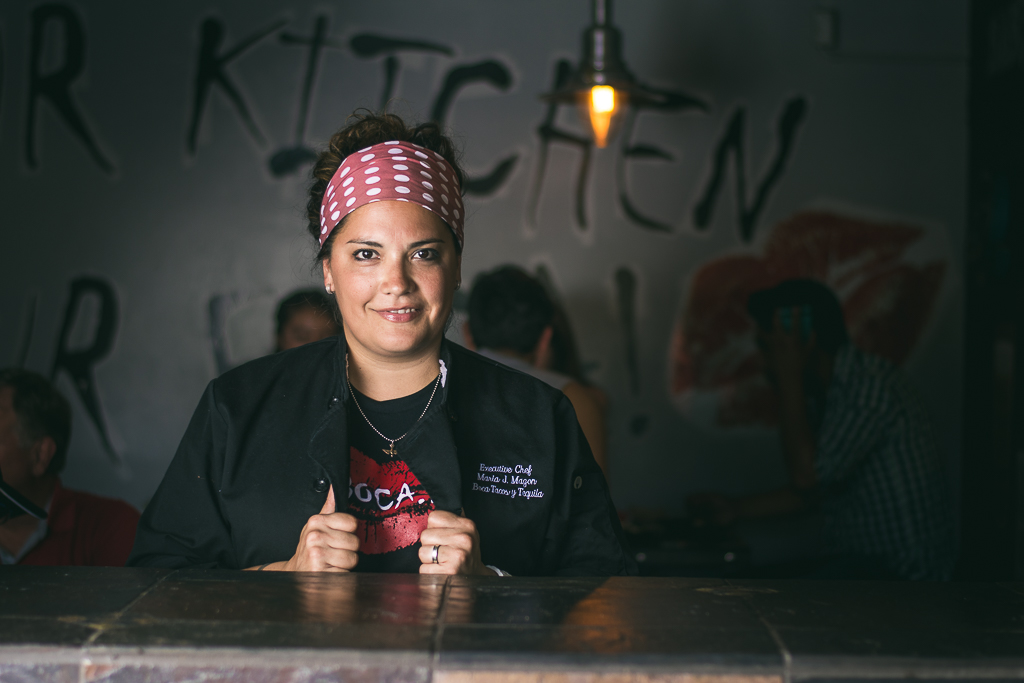
“Any true Mexican cook will say Doña Cuca. That was got me in to cooking. Any Mexican mother passed this along to their daughters. I have many many books, but I always go back to the basics.”
View our August 2017 Nine on the Line with Maria Mazon.
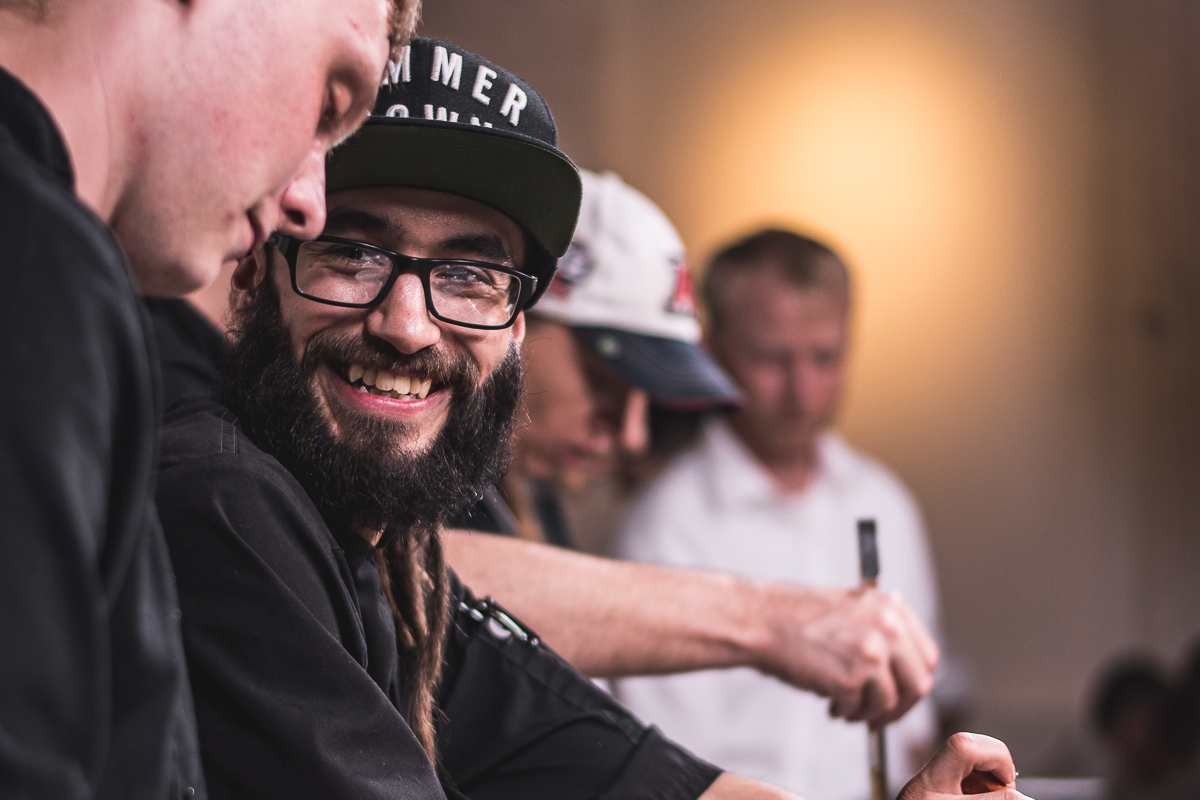
“Hands down, Humble Pie by Gordon Ramsay. Kitchen Confidential was my first book and very detrimental for a young chef, however Humble Pie really made me take a step back and realize how important being a good yet stern chef can be for the kitchen. Setting the pace and standards all starts from the top. Also made me realize that it doesn’t matter the hand you’re dealt, but the way you play your cards.”
View our August 2017 Nine on the Line with Izaak Morhaim.
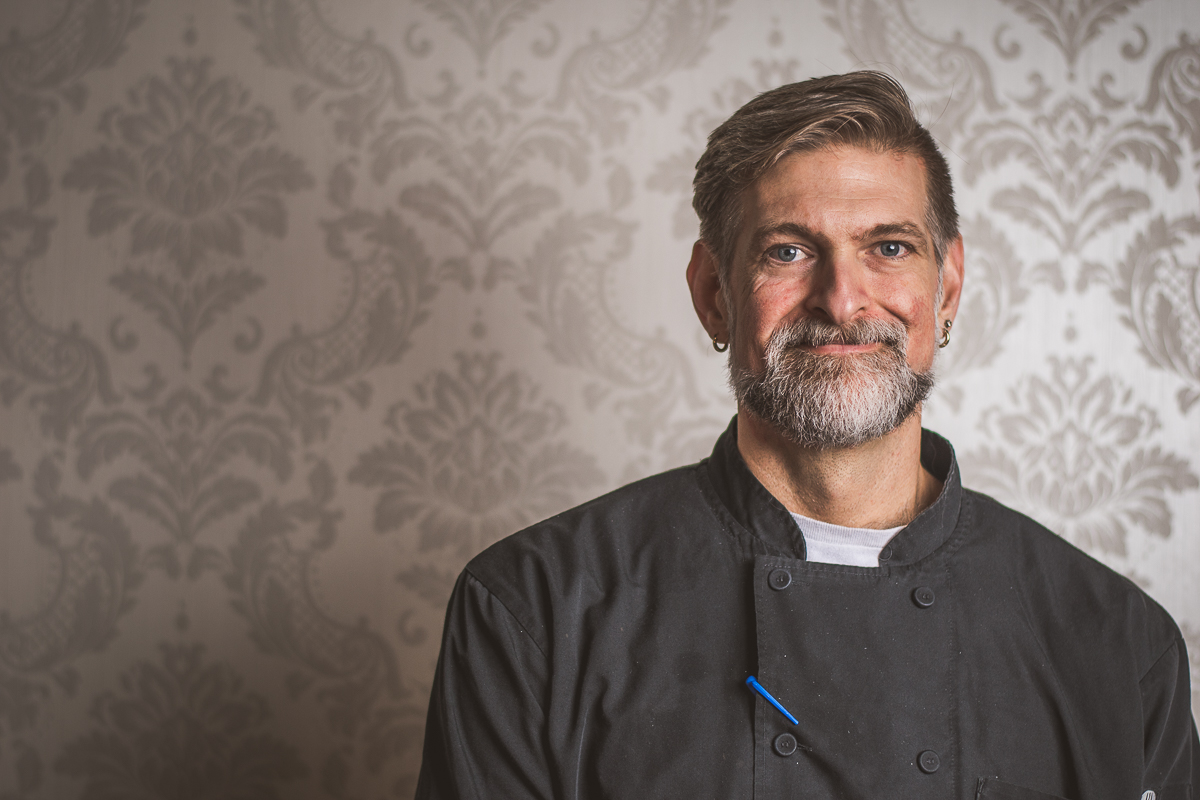
“I’ve got to break the rules on this question because picking a singular favorite cookbook would be like publicly declaring your favorite child. Of course there are the canonical classics of Escoffier, Jacques Pépin, Julia Child, et al. (all of which are indeed seminal), but I’ll have to go with three books from the last decade or so that have piqued my interest.
Firstly, I’d go with the Momofuku cookbook, gifted to me by Janos a few months before I staged at Momofuku. It’s decidedly the most weathered, worn, used, and lent book in my collection. David Chang’s approach to American cuisine as a synergistic product of cultural confluences was really revelatory for me. Seeing the analogues between dishes and foods from different cultures and weaving them together, troping off of them, and synthesizing something phenomenal like Chang does is tremendously inspiring to me. Bacon dashi shrimp and grits? Spicy pork sausage and rice cakes that’s kinda-sorta-but-not-really Asian pork Bolognese that “…isn’t really Sichuan or Korean or Bolognese or anything, but it is very Momofuku. And banging.”
My love of Momofuku and Chang’s influence led me to my second book on the list; I love the ethos and wonder of Mission Street Food: Recipes and Ideas from an Improbable Restaurant. Karen Leibowitz and husband-chef Anthony Myint chronicle the crazy journey from a pet-project food truck on days off from working the line at Bar Tartine to a benevolent association, a clubhouse for phenomenally creative chefs, a post-modern-gig-economy Chinese restaurant subletting within another Chinese restaurant, to its aftermath that has spawned erstwhile chef de cuisine Danny Bowien to launch a growing empire under the mantle of Mission Chinese Food. The brilliance of this book is in the vision of what cuisine does within culture. The dynamics of how communities come together around food, how chef and cook culture infuses life into both the community and the experience of dining, the refusal to play to type and cleave to a singular genre — I love the vision of Mission Street Food, and it certainly informs my vision of things I’d like to see from our own little chef community of the Gastronomic Union of Tucson (GUT). Plus, what other cookbook invokes French public intellectual Pierre Bourdieu and the concept of social capital?
Lastly, I’ve gotta shout a little love for The Art of Living According to Joe Beef: A Cookbook of Sorts. Chefs David MacMillan and Frederic Morin are fabulous raconteurs, so the storytelling in itself is compelling enough reason to check it out. The cuisine they embrace finds its antecedent in traditional French market cuisine, but they are modern and cheeky and self-conscious and ironic in a way that is delightfully fun. Cross-Canadian train travel, gangster stories, foie gras breakfast sandwich, hot oysters served on a toaster, and tips for welding your own cake mold — this is nerdcore for the gourmand bon vivant.
My crazy loved to death Momofuku with the same level of wear displayed by my first teddy bear.”
View our September 2015 Nine on the Line with Devon Sanner.
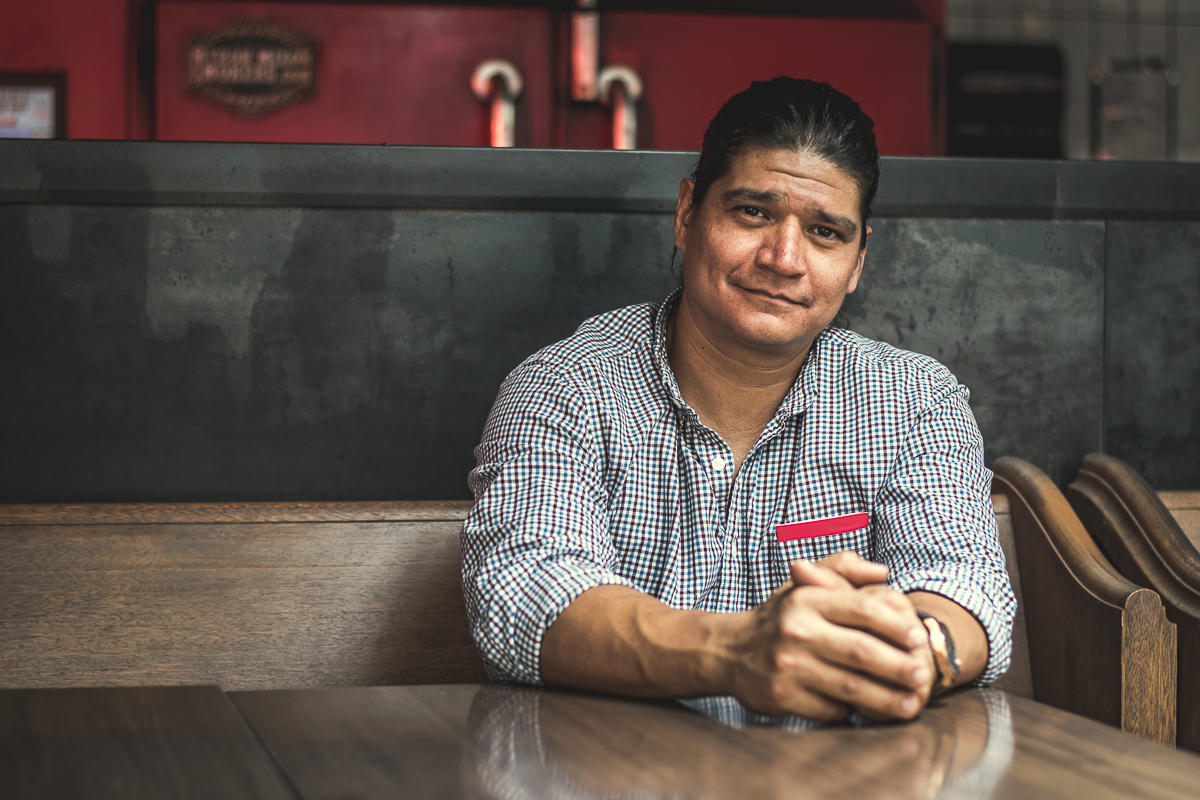
“One of my favorite books is called My Last Supper. It’s an amazing book that ask many different amazing chefs the same few questions, what would your last meal be, who would you eat it with, what music would be played, and where would it be. Each chef (there are 50) then gives a recipe. The answers, pictures, and recipes are truly amazing, it’s like 50 books in one (50 authors, 50 food philosophies, 50 recipes) and it really lets you see a side of these great chefs that you normally wouldn’t.”
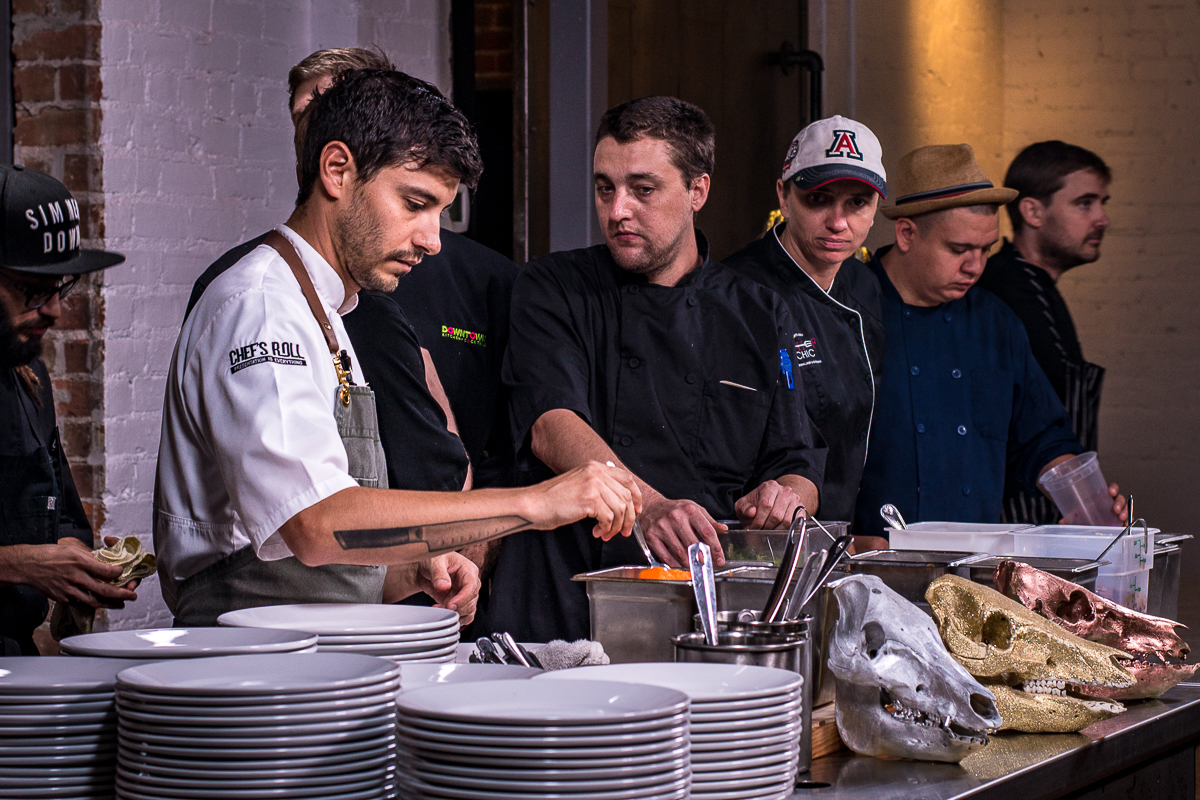
“I don’t know if I could narrow it down to just one to be my favorite. I started collecting cookbooks 18 years ago back when you could get them mailed in on a Good Cook Book Club similar to The Columbia House Subscriptions. My first was the French Laundry Cookbook and it was the first time I saw fine dining being presented at that caliber. To this day, I feel that it’s still one of the most relevant and a timeless reference for any serious cook. Since then I’ve added and taken away from the collection and I have started to like ones that have less recipes and more of a collection of thoughts like Notes From A Kitchen and Momofuku. Notes is a collection of photographs and quotes from many different chefs of their Moleskines and scratch pieces of paper. It shows their thought process on how they arrive to their finished product. Momofuku divides chapters by restaurant and talks about how the concept was developed as well as individual dishes. After a while I became more interested in the overall journey rather than the exact guideline on how to make something.”
View our July 2017 Nine on the Line with David Solorzano.
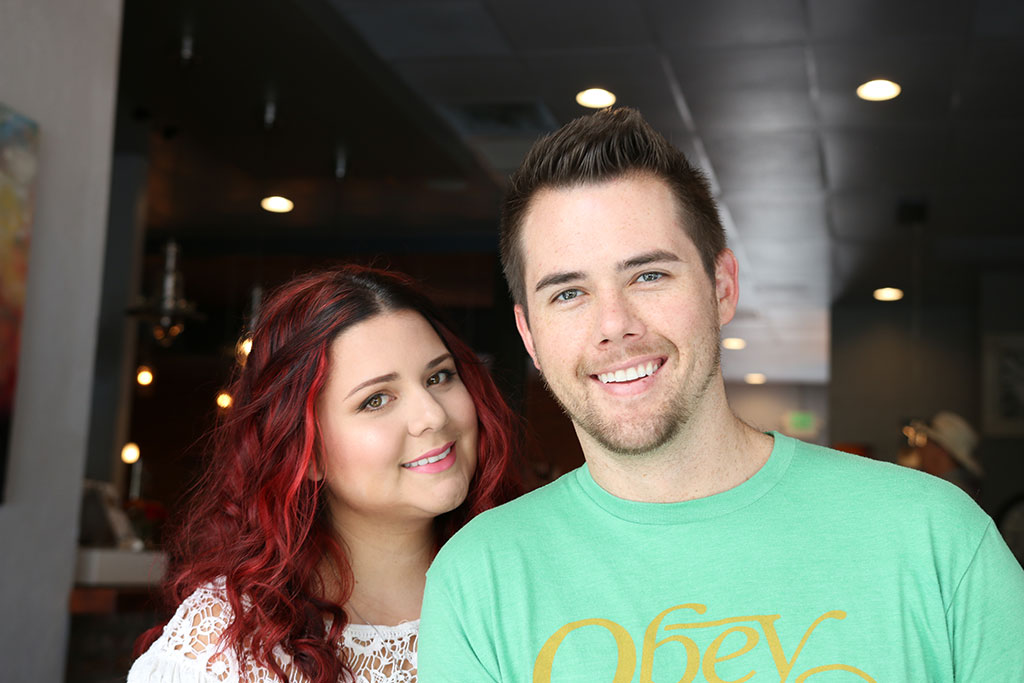
“My favorite cookbooks are the French Laundry and the Ad Hoc collection. Not because they are practical recipes by any means, but because it’s nice to read and brush up on some of the techniques and skills they teach. Since I cook on the daily, I’m not likely to go home and pick up a cookbook to use and cook with. For me, I read them to reignite passion and techniques that can sometimes get lost in the day to day.”
View our September 2015 Nine on the Line with Nikki & Matt Thompson.
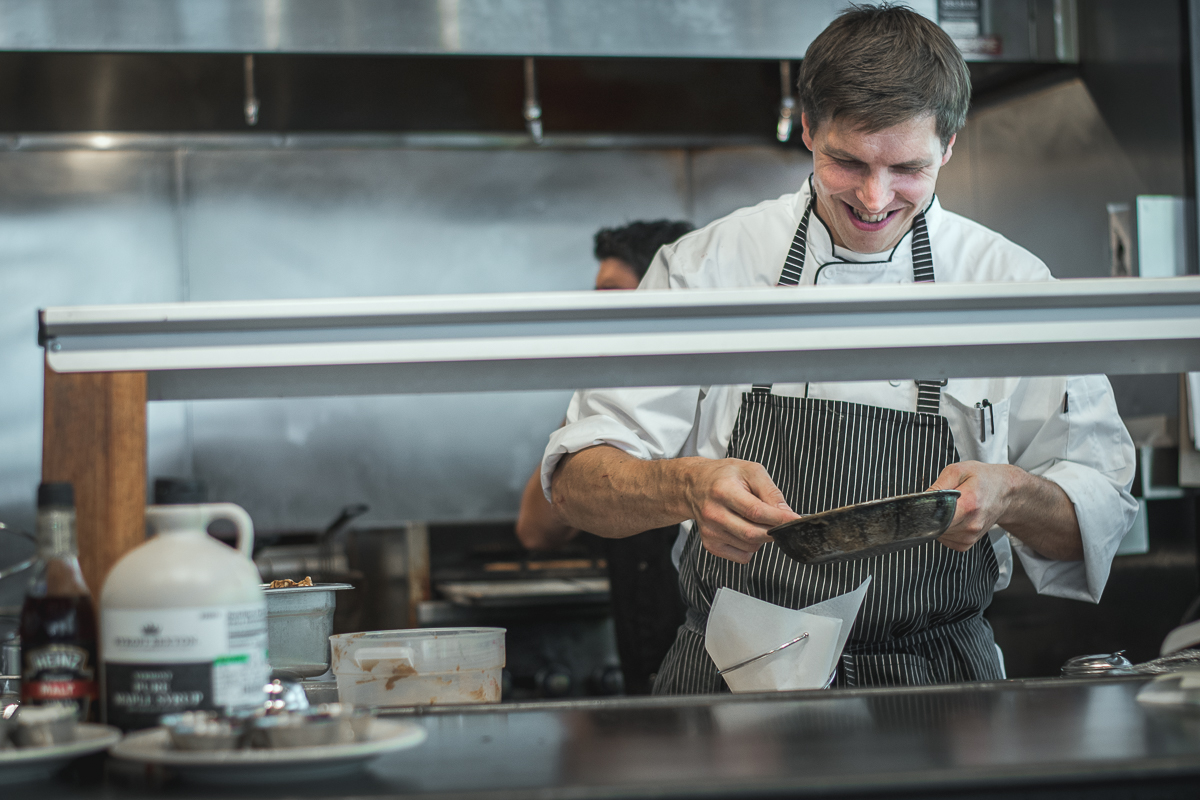
“I can’t just pick one cookbook. I have at least six in my office right now.
On my desk, I have my mom’s old copy of Groot Margriet kookboek because we are constantly reinventing classic Dutch and European recipes for our restaurant and it has the best classic Dutch recipes.
I have the Escoffier Cookbook because I like to refer my line cooks to it for basic recipes.
I have Larousse Gastronomique, which I use for recipe development. For inspiration I use Food for Thought: Thought for Food (about elBulli’s restaurant).
When I want to try to get a better understanding on the process of a style of cooking I will use On Food and Cooking by Harold McGee.
I even have a 1961 copy of Brennan’s New Orleans Cookbook I was using for an event I was part of with GUT (Gastronomic Union of Tucson).
Needless to say I have tons of cookbooks. Outside of the ones on my desk and in my office by have dozens all stacked up under the stairs at The Dutch Eatery & Refuge.”
View our July 2017 Nine on the Line with Marcus van Winden.
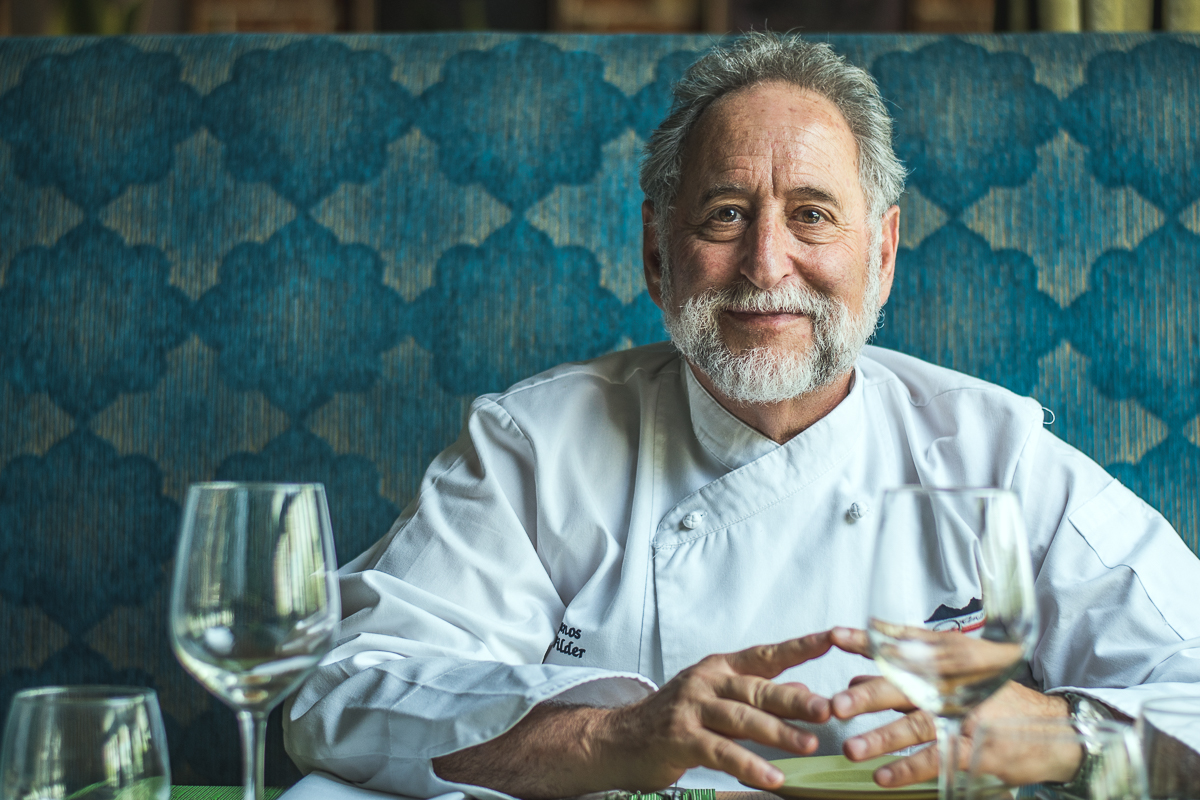
“If it has to be only one then it’s Jacques Pepin La Technique. As an aspiring chef if was my first bible. It sits on my shelf now, battered, binding falling apart with pages spilled upon and soiled. I still pull it down from time to time for a refresher. Since then I’ve gotten a chance to meet Jacques a few times and to thank him for all he’s taught me and countless cooks like me. His step by step approach and superb methodology taught me much of what I’ve learned and exposed me to processes I would otherwise never have had the opportunity to learn. He is a treasure.”